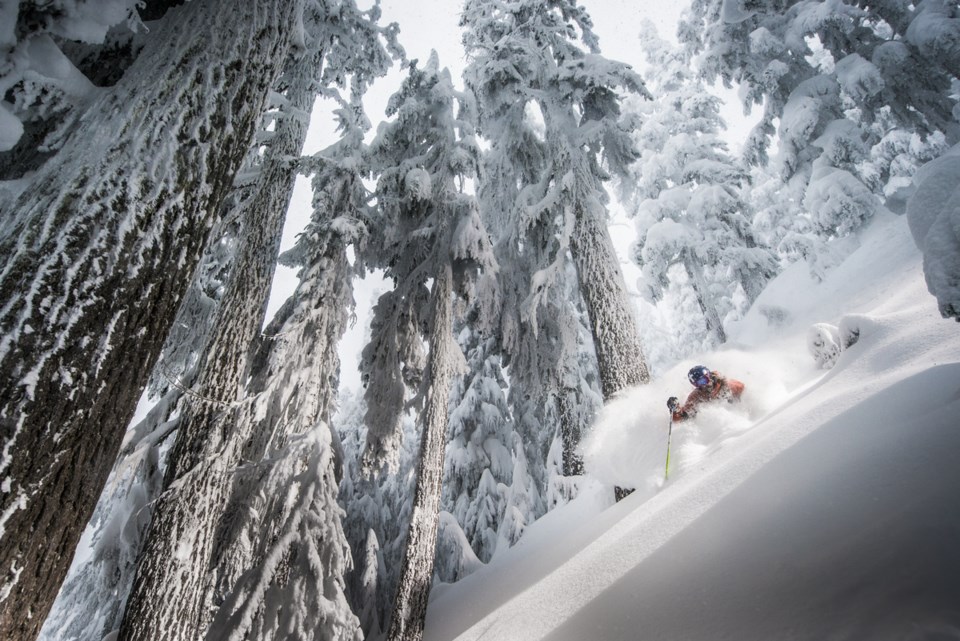Vail Resorts’ EpicPromise Progress Report is set to look a little different for the 2020/21 season.
At least one environmental marker that the company uses to track its progress won’t be comparable from this season to next—and that’s due to COVID-19.
“We have more single-use [items] this year because of COVID,” said Allana Williams, Whistler Blackcomb’s sustainability manager. “We are opting for compostable packaging so we have an agreement with Eco-Products. We favour the plant-based single use if we have to use single use, but that’s not our ultimate goal, to have a ton of single use and divert it. We want to reduce it … [but] at the moment it’s a safety issue.”
To that end, where Vail Resorts as a whole achieved 50 per cent waste diversion nine months ahead of its end-of-year 2020 goal—as outlined in the Epic Promise Progress Report for 2019-2020—it has moved to month-by-month comparisons during the ongoing pandemic.
“Comparing to last year might not be the helpful, so our plan is to compare month to month and then we look at those numbers and see if we can identify any problem,” said Williams.
Other highlights from this year’s early December report include: being on track for zero-net emissions by 2030, zero waste to landfill by 2030, and achieving 100 per cent renewable energy for the Park City Mountain Resort.
Locally at Whistler Blackcomb, recent achievements have looked a little different—in part because the resort started with higher environmental standards when Vail Resorts bought it in 2016.
“Whistler is at a 71 per cent [waste] diversion rate,” Williams said. “We’ve actually reduced our waste to landfill by 72 per cent since 2000, and then the 71 per cent is the portion we divert—like recycling and compost. But because we’ve done so much on the reduction side, in some cases we have a third of the waste [despite having] twice as many visits than some other resorts… Our focus has been on reducing first.”
In the last year, Whistler Blackcomb now has close to 100 per cent LED lighting, which has helped reduce its energy use. “We’re almost there,” Williams said. “Last year we did some projects in the retail stores, Patagonia and North Face stores. And then we did the Creekside parkade; and I’m the only one who notices that—it’s a big deal! A super big deal.”
Whistler Blackcomb also recently finished a project to control heat in its lift huts. It installed controls to shut the heat in those small buildings down at night then turn them back on shortly before lifties return to work in the morning, rather than having them heated all the time.
“We did that project with BC Hydro, which was a big one for us,” she said.
Right now they’re in the middle of a lighting project with the harder-to-reach places like the snowmaking pumphouses, workshops, and lift stations.
“Last year, we did a whole lot of work to optimize our snowmaking system,” Williams said. “When we use it, how much we use it, but now we’re focused on low-energy snow guns because they use between 10 and 30 per cent energy of a normal gun. So we have 65 of them so far and we’ll continue to try to invest in those. It helps us to make snow mid-mountain and they use a lot less energy. We’ll continue to focus on that.”
Another initiative has been to have energy models on Whistler Blackcomb’s big six restaurants and bars. That means they receive reporting every week on things like energy consumption and heating bills and can adjust consumption regularly.
On the greenhouse gas emissions front—which at Vail Resorts’ legacy operations saw a decrease by 20.7 per cent last season, due mostly to the shortened ski season—Whistler Blackcomb installed SNOWsat, a satellite tracking system in the snowcats to monitor idling time and driving efficiency and report the metrics.
“The SNOWsat has been a big thing for us and something we wanted for a long time and we were able to have it because of Vail Resorts,” Williams says.
In addition to environmental goals, the report also outlined Vail Resorts’ community investments. In total, the company gave more than $20 million cash and in-kind contributions to its employees and communities through grants and various commitments. In Whistler, 72 organizations received $1,835,543.
The full report can be viewed at epicpromise.com.




